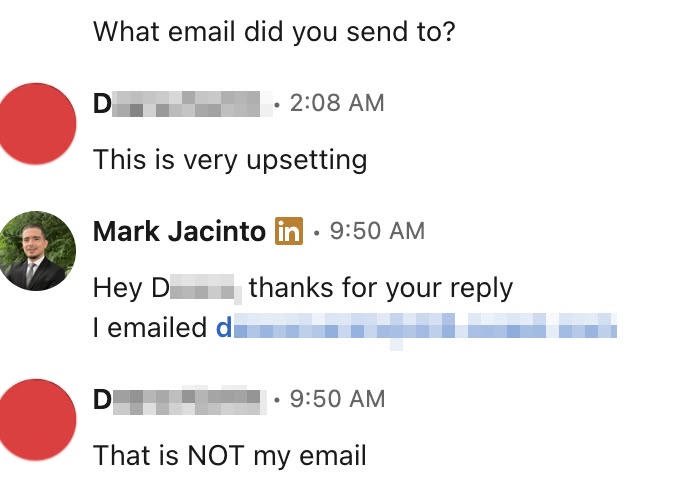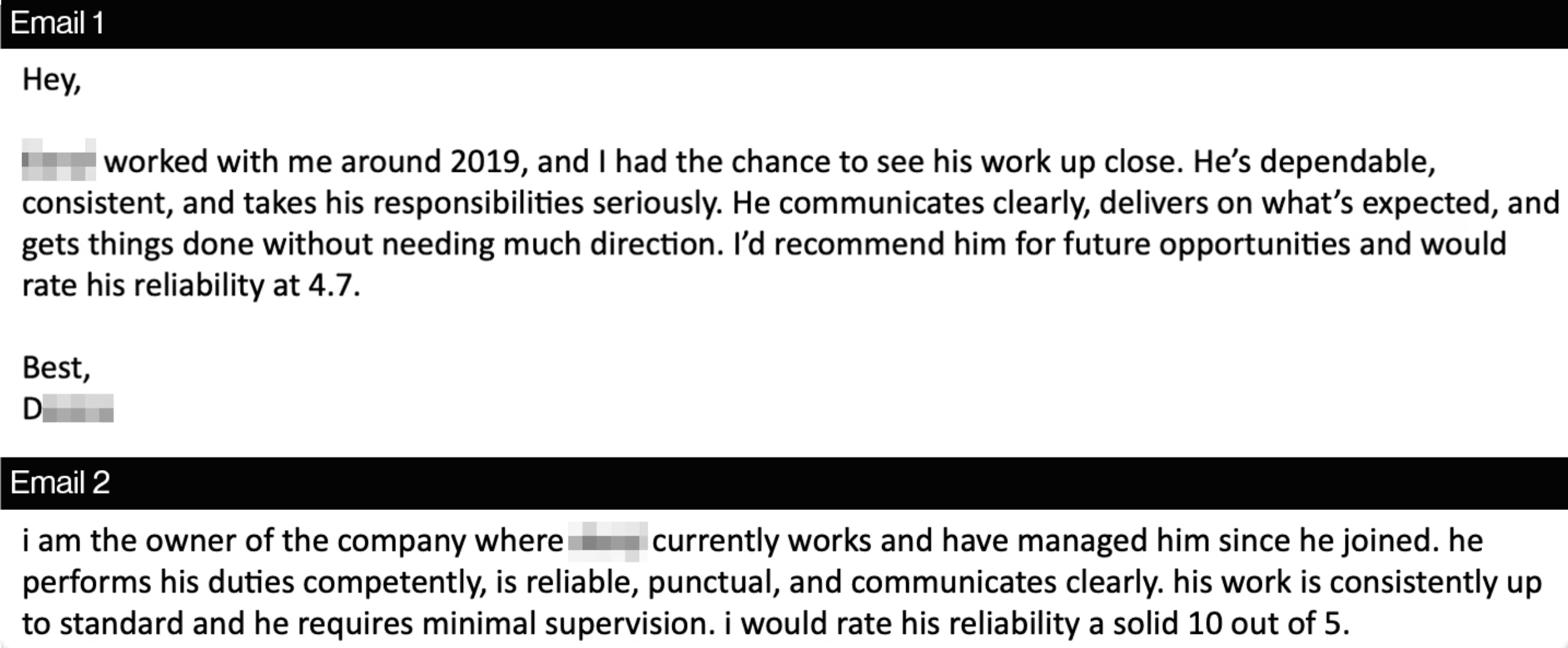We Caught a Fraudulent Applicant. Here’s What Every Employer Should Know
Nov 19, 2025

Fake references happen more than we realize, and some applicants will go surprisingly far to pull it off.
This week, an applicant sent us what one would immediately assume was a legit reference email (because why wouldn’t you, right?)
Well, turns out… it wasn’t.
And the crazy thing is, it wasn’t even his first time doing it!
He pulled the same move with us back in 2023.
Here’s the only screenshot you really need:

Back in 2023, he used fake names, fake emails with the company’s actual domains… He even went as far as replying as his own “manager” to say good things about himself.
And now, in 2025: same trick, but with a new fake identity.

This scenario might be rare...
…but it’s more than enough to matter.
You see, in our experience, most remote workers have been great and totally trustworthy.
But once in a while (and that ONCE is a really dangerous one), there will always be a few shady characters willing to go to great heights to cover up a web of lies – all for the sake of getting hired.
And if they’re comfortable lying from the very start, imagine what that means later on…
A lesson learned...
Always double-check your applicant’s references through a second channel. It could be from LinkedIn, a call, anything outside of email.
Email alone can be some of the easiest places for someone to fake an identity, so a second touchpoint makes the truth obvious fast.
(Plus, doing it early on is infinitely easier than cleaning up the mess it would’ve caused later!)
At M-Ocean, we double-check these references every time so our clients avoid candidates who try to sneak past the system.
Most remote workers are solid and trustworthy, but staying alert to some of the outliers makes all the difference.


